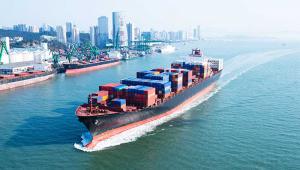In a report, released today, ESCAP said the region is relying excessively on debt to sustain growth and should work to reinvigorate domestic demand, strengthen productivity and take a more proactive stance on fiscal policy.
“The adoption of the 2030 agenda comes at a time when global policy makers are still struggling to revive economic growth despite taking extraordinary measures,” Shamshad Akhtar, executive secretary of ESCAP said.
“While the 2030 agenda promotes a broader concept of human welfare, robust growth is important for creating jobs and improving overall development outcomes.”
Akhtar added that slowdown in the region’s economic growth is raising doubts about its continued ability to lead the way forward to economic recovery.
ESCAP’s Year-end Update of the Economic and Social Survey of Asia and the Pacific 2015 shows that developing economies in the Asia-Pacific region grew by an estimated 4.5% in 2015 – the lowest since 2009. Private consumption and investment both slowed while exports remained sluggish.
It highlighted China in particular as facing substantial challenges to the sustainability of its growth, including high inequality, rapid accumulation of private debt and serious pollution issues.
The gradual slowdown in the Chinese economy and its move to a new growth model have impacted equity and currency markets in China, the region and beyond, offsetting the expected boost from the moderate recovery in advanced economies, it noted.
ESCAP said that although the report predicts a modest rebound to 5% growth in the region this year – compared to an average of 9.4% in 2005-07 – weak external demand and domestic factors such as low productivity and wage growth, infrastructure bottlenecks and slower implementation of reforms are stifling the region’s potential.
Significant inequalities of incomes and opportunities are also hampering the achievement of broader development goals, it said. Akhtar said “it is critical that productivity growth is accelerated and its benefits passed on to the labour force”.
“Economic growth supported by increases in real wages is more resilient than growth backed by the accumulation of debt,” said Akhtar.
The report also recommends fiscal policy provide countercyclical support to the economy and work to strengthen foundations for future growth and development.
In particular, public expenditure on education, healthcare and infrastructure could strengthen productivity and work towards achieving the SDGs, it said.
“In order to create more fiscal space to invest in these critical areas, governments should reprioritise expenditures and enhance their efficiency while improving tax policy and administration,” explained Akhtar.
The report also noted that some countries have taken positive steps in this direction, such as phasing out inefficient and inequitable fuel subsidies.














